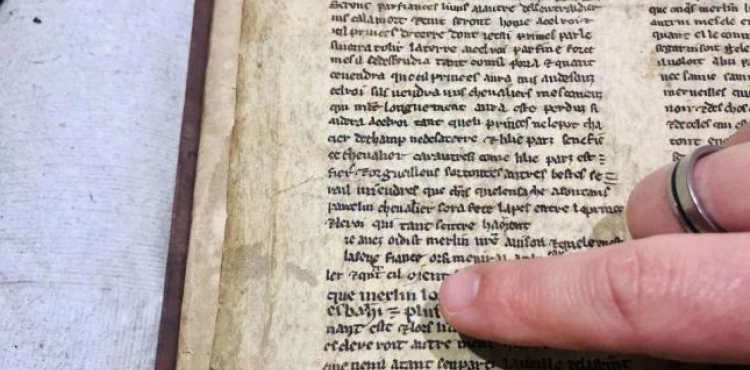The lost stories about King Arthur and his close and charming friend Merlin can lead historians to the mythical Holy Grail.
The 800-year-old handwritten text recounts the Battle of Travis, where Merlin inspired Arthur´s forces with a dramatic speech and used a fiery magic weapon.
In total, 7 parts of the medieval manuscript were discovered in the archives of the Central Library of Bristol.
Experts are now analyzing parts believed to be copies of "Estoire de Merlin", the story of Merlin.
But while the manuscripts tell tales of many of Arthur´s legends, they are characterized by subtle but important changes in traditional stories. For example, the various personalities are responsible for leading the four branches of Arthur´s forces.
"These parts of the Merlin story are a very exciting discovery, and they may have implications for the study of other texts as well, which later formed our modern understanding of the Arthur legend," said Dr. Leah Tether, president of the Arthurian International Society.
King Arthur´s tales are based largely on folklore and a handful of medieval texts, and historians are still debating whether the king actually exists.
The legend says that Arthur was king of Britain, defeated the Saxons and founded a large empire in the early sixth century.
The king is known as the head of the kingdom of Camelot and the Knights of the Round Table who launched the search for an invaluable body known as the Holy Grail (a bowl used by Jesus at the Last Supper). Arthur is believed to have been found in the end, and hidden somewhere around Britain.
The parts discovered in Bristol have been severely damaged, making the experts do more to decode them.
"Time and research will reveal more mysteries of the myths of Arthur, Merlin and the Holy Grail, which may be borne by these manuscripts," Dr. Tether said.
It should be noted that Arthur´s legend was circulated by many medieval writers, including Jeffrey of Monmouth.












